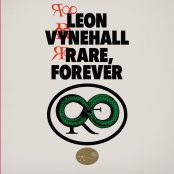[dropcap style=”font-size:100px; color:#992211;”]T[/dropcap]
here are certain labels and artists that you’re “supposed” to like in order to be perceived as truly open-minded/progressive/forward-thinking, etc.
Pan and Lee Gamble seem to fall into this category. For now at least, the consensus is in their favour and there are few dissenters. It shouldn’t need saying that this kind of uniformity of opinion isn’t always positive and often isn’t based on genuine feelings so much as the need to be seen to like something.
Though probably impossible to prove, it’s even possible that some listeners may be able to condition themselves to believe they like something through critical and peer pressure. So in our era of institutionalised hype(r)production, when critics and listeners are exposed to colossal amounts of new material on a weekly or even daily basis, the main test for a release like this is whether it lives up to its own mythology and the consensus reinforcing it.
The label claims Gamble’s new album “dives even deeper to reveal a singular and intimate musical vantage point, shifting to approaching music as projection, state, hallucination, an other place” yet the feeling the first few tracks give is that they don’t dive nearly deep enough, preferring to glide along on well-charted and unsurprising waters. The danger with self-consciously “deep” music that doesn’t fulfil it’s own promise is that a listener can be left feeling like the straight one at party full of stoners all convincing each other they’re experiencing something incredibly deep and meaningful.
Yet while it takes its time to become deep and meaningful, there are certainly some distinctive tracks here, even if 16 tracks that span a wide range of styles feels like overkill. As a former jungle producer and DJ, but also a promoter of experimental events, Gamble oscillates between dancefloor and experimental priorities. Crucially, unlike so much self-consciously experimental/improvisational work, KOCH really is at its most interesting when it strays furthest from established genre templates out into uncharted space.
Intentionally or otherwise, opener ‘Untitled Reversion’ sounds like an homage to mid-1990s Future Sound of London. It’s well-produced but dated (or at least, so nostalgic that it sounds dated).
This is followed by ‘Motor System’, which is centred around a “deep perception” voice sample (which is at odds with a fairly workmanlike track that doesn’t seem to open up any deeper levels). ‘You Concrete’ is a brief but interesting experiment, featuring an intriguing sample berating “hollow, miserable sub-culture” set alongside what might be field recordings, utopian tones and the soft bass impacts that Gamble does so well.
It’s with ‘Nueme’ that the album actually does go (somewhat) deeper. It’s an edgy, half-defined piece featuring strange, nervous harmonic elements and muffled percussion. This is succeeded by ‘Oneiric Contur’ which features an almost naïve element set around shifting, ticking percussion, hinting at a shift into more interesting territory.[quote]it may need some time to
relate to, but there are certainly
some genuinely different and
interesting tracks[/quote]
The next track of note is ‘Hmix’ featuring tenser and colder details and a bleepy pattern. This is more of a club-oriented track, introducing some urgency to the album but it passes a little too swiftly. ‘Frame Drag’ is an idealistic and atmospheric track, almost too sweet for its own good but still retaining some dignity. There are some similarities here with V/VM’s Death of Rave work, although it’s not quite as epic.
If there are some less than completely compelling tracks in the first half of the album, the C and D sides contain the real meat of the album, where things get really interesting. ‘Voxel City Spirals’ features de-tuned gamelan-like sounds reverberating through a swampy mix that sounds both primitive and advanced. Coming across like a study in what it’s tempting to call stone age techno, it accelerates into glitchier, noisier details and digital fragments towards the end.
Gamble isn’t one to hold back on imaginative track titles and ‘Yehudi Lights Over Tottenham’ is certainly a memorable example. As a track it’s suitably hard to pin down, but full of interesting details. A fuzzy background wash of sounds that might be distant traffic is punctuated by semi-functional percussion and smeared tones that slowly mutates into something even stranger and more undefinable.
The abstractly-titled ‘Jove Layup’ turns out to be a punchier track that’s linear but somehow slightly out of synch with itself. Filled with odd details, it’s very idiosyncratic and innovative. ‘Ornith-Mimik’ is a further shift of pace and style. Electro-acoustic crackle, bass hum, electronic crickets and intermittent percussion blend into something strong and very filmic.
After this conceptual excursion, ‘Caudata’ is a smooth but worthwhile nod to the futuristic dreams that animated the best of Detroit techno. While the structure is linear and the beats fairly orthodox, a key role is played uneasy metallic tones cutting through it constantly. These seem like tonalities that couldn’t have existed when Detroit began. It’s a fluid and forward-thinking epic and one of the most satisfying tracks here.
Less overtly optimistic and more inward-focussed, ‘Gillsman’ is a glitchier dancefloor track featuring a muffled punch, odd post-garage snippets with deep and almost subliminal bass. ‘6EQUJ5-7’ is a restrained but fairly positive finale, featuring ethereal chords and spindly percussion elements that peters out elegantly.
KOCH is an album that’s hard to fully describe or categorise. It could certainly have been shorter and more focussed, but it does showcase a wide range of styles, even within some of the individual tracks. For those not already persuaded by the pressure to like this it may need some time to relate to, but there are certainly some genuinely different and interesting tracks that should be heard. The fractured, inconsistent nature of the work seems to be inherent to Gamble’s approach but this makes it harder to assemble an album focussed enough to be considered “classic” or “essential”.
As it is, it’s a noteworthy and, at times, very impressive, selection of tracks.

From Speak and Spell to Laibach.




















